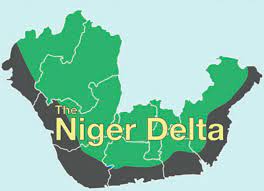By Amos Odeh, Yenagoa
Non-governmental organization, Stakeholders Alliance for Corporate Accountability (SACA), has ended a three-day training programme on effects of gases for officials of the National Oil Spill Detection and Response Agency (NOSDRA) and the Bayelsa State Ministry of Environment.
The programme funded by Misean Cara of Ireland and St Patrick Missionary, Port Harcourt Mundial learnt, was a fall out of SACA’s collaboration with government and other stakeholders towards ensuring a safe, healthy and gas related hazard-free environment for field workers in both public and private establishments.
Describing the training as auspicious, executive director of SACA, Mr Kingsley Ozegbe, told newsmen after the event that the essence of the programme was to learn and train participants and the general public, as well as continue to create awareness on the dangers inherent in gases, including how even the ones considered not harmful could become hazardous to human life and the environment when not properly used or handled.
“Through this training participants have also learnt that even those gases which ordinarily could be considered non hazardous too could pose hazards. We call on the multinational companies, government and all operators in both the public and private sectors to be cautious in their handling and regulating of the oil and gas sector.
“But even as citizens we must also be careful when it comes to doing our jobs, because we want to carry out these jobs without exposure to the hazards of gas.
“Already SACA has acquired a device which would help us monitor the air quality and gases in our environment. And it’s called aeroqual gas monitor,” Ozegbe added.
Our correspondent, who monitored the programme in Yenagoa, the state capital, reports that a resource person, Mr Ukekwe Charles, identified all gases as having the potential to cause hazards, noting that if not properly handled by operators and regulators in the oil and gas industries, they pose a serious threat to both human life and the entire ecosystem.
“There’s this gas that crawls on and beneath the surface of the earth called hydrogen sulphide. This gas is so dangerous that when an oil spill occurs, while the menaces of other gases are contained, it crawls on the ground. And so it’s hardly controlled and therefore poses even a more serious threat to both human life and the environment.
“Though we need oxygen as humans to stay alive, but we must also know that too much of oxygen in the environment too poses hazards. Oxygen is highly combustible. But in general, all gases are combustible. Gases in an environment could be ascertained through the processes of diffusion, aspiration and physical pumping. Nobody should work in an environment with hazardous gases for more than eight hours”, he said.
 PH Mundial – Port Harcourt Online Newspaper News Across The Region
PH Mundial – Port Harcourt Online Newspaper News Across The Region





